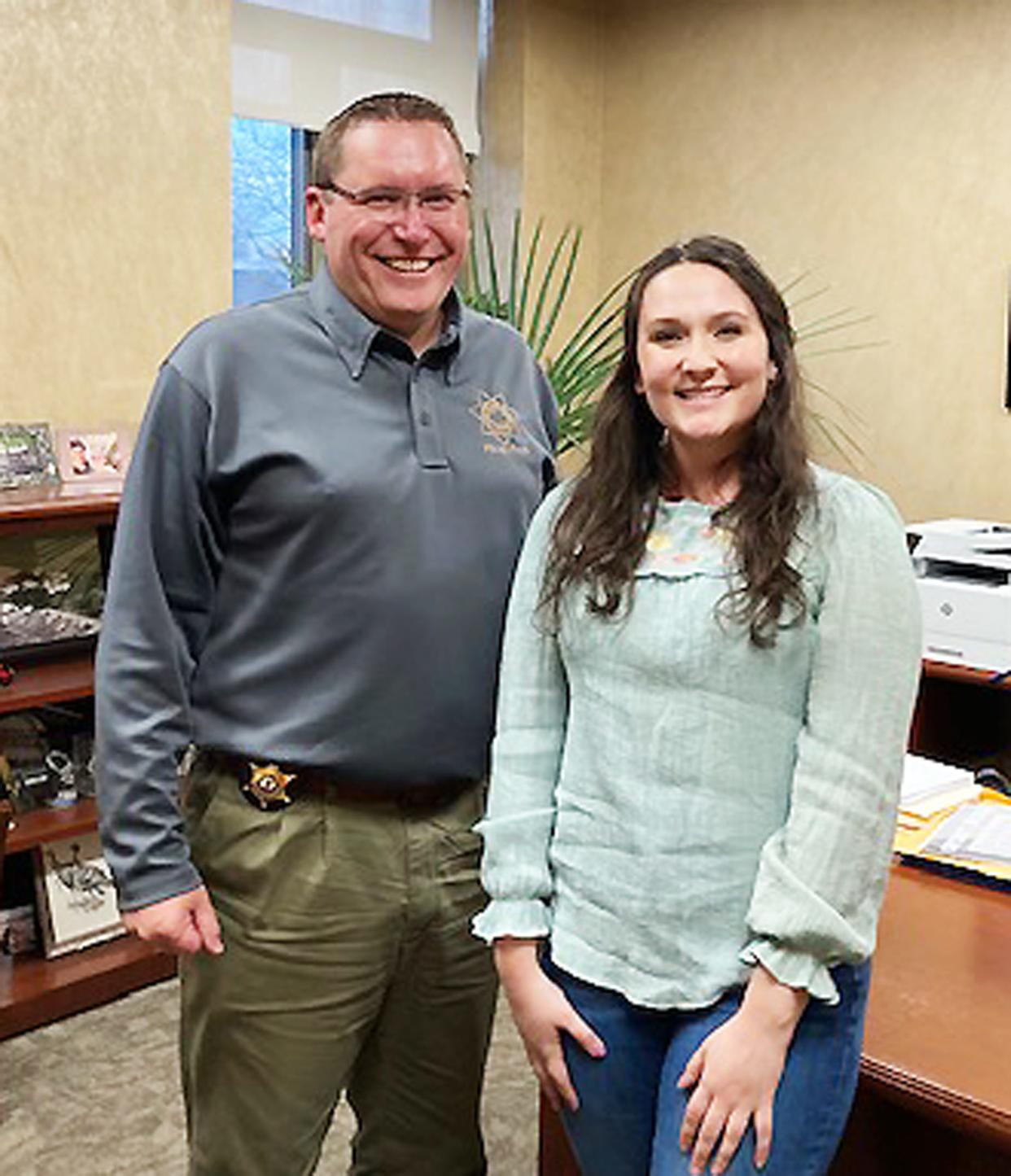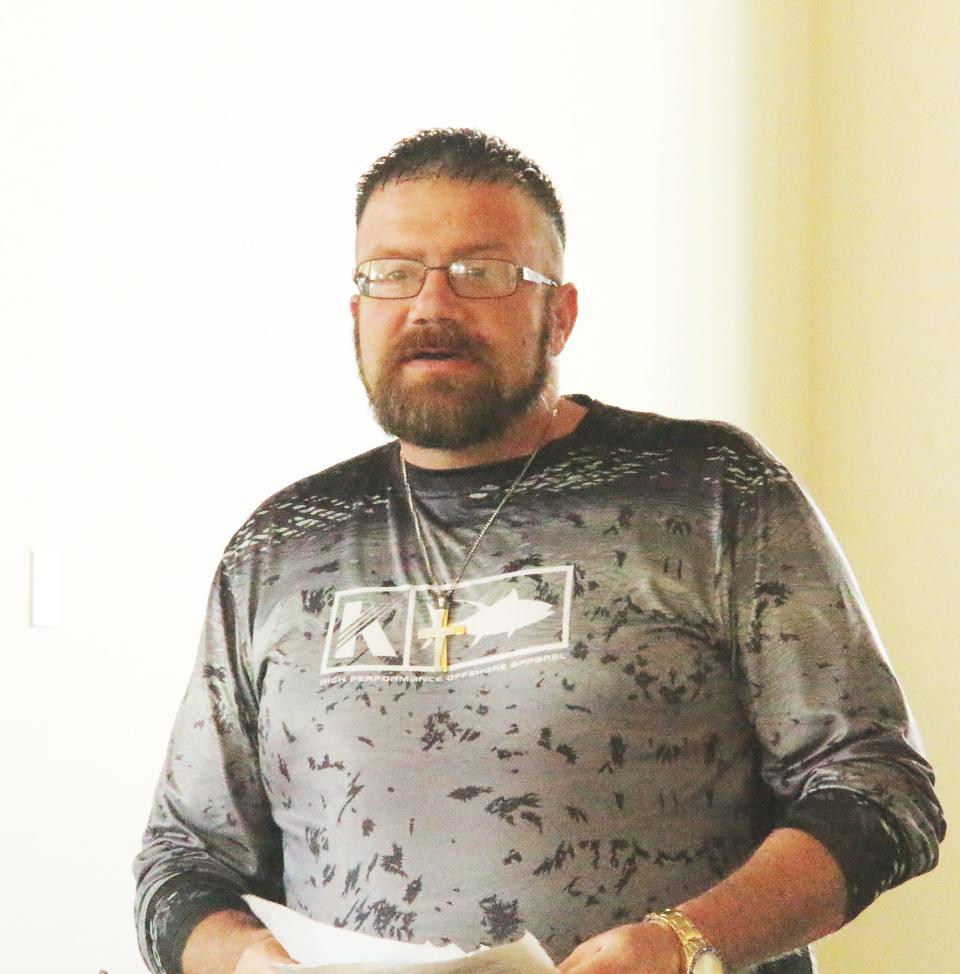Graduating from drug court is a tough process

On March 31, Charles Phinney graduated from Drug Court. It took a tremendous effort on his part, as well as a lot of encouragement and support from quite a few others, including his probation officer and other members of that department.
Phinney is the first post-COVID graduate from the program and there will be another three graduations expected in the next few months.

Phinney was arrested for aggravated DUI and was faced with doing time behind bars, but the opportunity for drug court presented itself and Phinney opted to take that road. The program can typically take up to two years to complete. Phinney did it in 18 months, one week.
“He got the aggravated DUI and got put on the program,” said Erick Mund, who was Phinney's probation officer. “This was not his first DUI, if I remember correctly. He was looking at a prison sentence. He basically asked for (drug court).”
This is not the first time Phinney was part of a drug court program. He graduated from the McLean County program before COVID. (Phinney was invited to participate in this story but opted out of doing do.)
“He had been in trouble off and on for a long time,” Mund said. “He actually completed the McLean County Drug Court.”
“He said that even though he graduated McLean County Drug Court, he still felt like there were things he needed to work on and things he could learn,” said Mady Lane, another probation officer who is familiar with Phinney's case. Lane also has clients who are on or have been a part of the drug court program.
“He said he felt like he didn't the individualized treatment that he would here because we're a smaller program,” Lane added. “He was interested in doing it again and he thought this program might help him better than the other program did.”
The program is typically a two-year deal. Lane is of the belief there is something dealing with a physical readjustment period in the brain that takes about two years.
“When they get sentenced, it's a two-year sentence,” Mund said. “There's five phases and each phase is a minimum of 90 days. You could technically be out in 15 months. We've never had anybody out in 15 months but 18 months is probably fairly quick. Usually, they're around 20 months.”
Phinney was in the program for 18 months.
Getting through the program here wasn't that easy for Phinney as he fell into some of the same traps that virtually all the others do when they first get started.
“He played the game with the pot where he would smoke a little bit but think he was smoking enough to stay under the detection level of our cups,” Mund said. “However, he was not. Once he tested positive, he would wait a few days, or even a week or so, and smoke again and think that we weren't going to catch that because he was already positive on our cup.
“Our cups take, basically, 30 days for the pot to get out the system. It can take a little bit quicker or it can take a little bit longer depending on your system.”
In playing “the game,” a client tries to fool the probation officer about using. But drug testing takes place three times a week in the first phase of the program. Mund noted that clients feel they have a free pass once they have tested positive because it takes about 30 days for pot to get out of a person's system. For Phinney, Mund noted that his levels weren't coming down. In fact, there were times when it went up.
“For a long time, he said he wasn't smoking,” Mund said. “Finally, we were like, 'here's your levels. It shows clearly that you have been.'
“He continued to say that he wasn't, so we're like, 'OK, you're going to jail for 30 days and we'll see if you're clean after 30 days.' He went to jail for the 30 days and he was clean when he came out and he said he was done, and he was.”
He wasn't the only one at the time, and Mund and Lane believe Phinney and the other client were playing the game together. The other client will be graduating from the program in May.
Regarding testing, Lane said, “Some (go) with the pot, some with any other drug. They think, 'oh, I'm positive for meth, I can use it again. She won't know.' I know. I'll send them off every day if I have to.”
“It's like they think they have a free pass after they test positive and then they admit it,” Mund added. “A lot of times they will admit the first time, 'oh yeah, I messed up.' There are times when they don't.”
When they don't, there is trouble. For Phinney, this meant 30 days in jail because he was testing positive for cannabis.
“He came out of jail saying he was done. Obviously, we didn't believe him right away,” Mund said. Lane added that Phinney went to jail about Christmas time in 2021 and was out at the end of January 2022.
Lane also has a client going through such a penalty.
“My one person that I have in right now is currently in a half-way house,” Lane said. “She completed her residential treatment and then decided to stay at the half-way house.
“I did have four at one point. They were all playing the game together and they all kind of took each other down.
“We try to give people (a chance) and not lock them up,” Mund added. “The biggest thing they go to jail is for still using and lying about it. If they are honest with us, we work with them. But when they continue to lie about it, and we're talking not the first time they do it or the second time they do it — the fourth or fifth or sixth time and then they're looking at a jail sentence.”
Mund said the jail term can be 2-30 days, depending on the drug of choice and how long it stays in the system.
Going to jail is the biggest penalty, but there are other sanctions that can be handed down. These range in writing a paper or just sitting in court for an entire day to observe what happens.
“By the time they got a sanction, that means they've had a few therapeutic adjustments before and we decided to go for a sanction,” Mund said. He noted that the average clients receives three or four sanctions.
Right now, there is a client in a half-way house who is still fighting her addiction. She just moved to Phase 2 after going through a rehabilitation program. She had asked for rehab while in jail.
“We got her (connected) up with someone from an in-patient facility that would do an assessment for her over the phone to make sure was applicable,” Lane said. “Then, she went to rehab for just over 30 days. She was going to come home but she wanted to go to the half-way house. She's just going to be there until she feels comfortable coming back.
“We're not in a hurry for her to come back because she's doing really well.”
Then graduation rate from the program is approximately 40 percent, Mund said, adding that this a bit higher than the national average.
There are currently five clients in the program with two referrals pending.
“We hope for more people to get into the program,”Mund said. “We've had plenty of people who have been referred to the program, but once they find out what the program is, they don't want to do it.”
He added that there have been potential clients who only wanted to do the program to avoid a jail term, but then they will fall back into their old habits and fail.
“I think we will continue to get referrals,” Mund added. “We have not turned away that many people but we're always looking for referrals.”
Mund and Lane pointed out that there haven't been any arrests made of graduated clients, but graduating from a drug court program isn't a guarantee that success will follow. This all depends on the client and the ability to fight to stay clean.
For Phinney, he ran into issues after graduating from McLean County's drug court that led to a relapse and a need for second chance.
There has also been one former client who died of an overdose about 18 months after graduating.
Getting through the process is a team effort, Mund said, adding that the team has seen changes recently. Tim Henson retired as police chief at Dwight, Jim Woolford left his post as Pontiac Police chief to become city administrator and Randy Yedinak moved from being Livingston County state's attorney to a judge.
“I don't think that has impacted our team at all. I think the people still have very good insight into the clients and behavior and what we're doing,” Mund said.
He pointed out that it is still the client who carries the burden of succeeding, even with the help of the team.
“Having the four that are graduating have all had their struggles along the way,” Mund said. “We, as a team, have expressed our faith in them that they can do this if they really want to.”
“They also feel like they've learned from some of the mistakes of some of the other participants that are no longer in the program,” Lane interjected. “They all tried to help the others at some point.”
“I don't want to take away from the clients who are graduating. They have to do all the hard work,”Mund added. “Me or Mady or Heidi (Zeidenstein) as a probation officer, or our whole team, we can't go out and do the work for them. They are the ones who have to do the hard work of stop using drugs.”
“And changing their thinking and cutting out family things,” Lane said. “I can't imagine having to do that. Some of them have to cut off certain family members. Even though that's all they've had their whole life, to get rid of certain people to stay sober is not easy.”
Phinney had to make that decision of making a family change. But Phinney has also helped others to fight through the process of getting clean and graduation. The next client is scheduled to graduate on May 11.
This article originally appeared on Pontiac Daily Leader: Mund, Lane know graduating from drug court is a tough process

